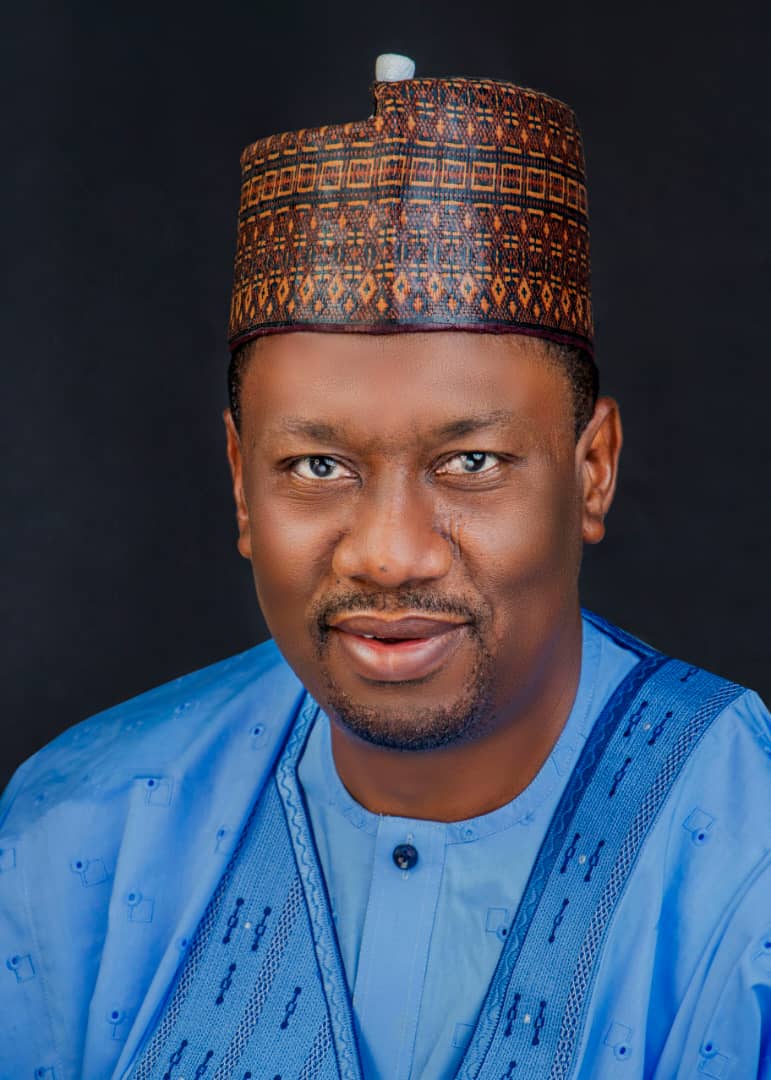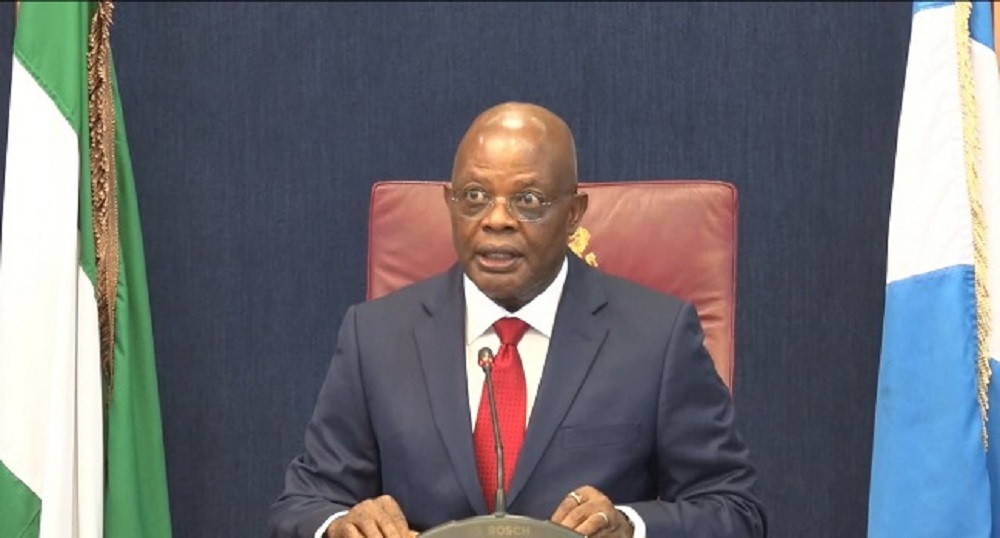News
Petrol Prices in Nigeria: Landing Cost Drops Amid Global Oil Fluctuations

The landing cost of Premium Motor Spirit (PMS), commonly known as petrol, has fallen to N981 per litre, according to recent data from the Major Energies Marketers Association of Nigeria (MEMAN).
This marks a significant decrease from the previous cost of approximately N1,130 per litre as of September 25, 2024, primarily driven by a decline in global crude oil prices.
Global Crude Oil Prices Influence Petrol Costs
Recent fluctuations in crude oil prices have had a direct impact on the cost of refined petroleum products in Nigeria. Brent crude, the global benchmark, traded at $71.41 per barrel on Thursday, down from $73.46 the previous day. In August 2024, the average price was around $80.36 per barrel, but has since fluctuated between $70 and $75 per barrel due to lower oil demand in China and expectations of increased production from the Organisation of Petroleum Exporting Countries (OPEC).
Increase in Petrol Imports Amid Local Production
Despite the decrease in landing costs, petrol pump prices in Nigeria have seen an increase. Major oil marketers have begun importing petrol following recent deregulation in the downstream oil sector, with three major marketers confirming the arrival of vessels carrying approximately 141 million litres of PMS. This shift comes as the Dangote Petroleum Refinery ramps up local petrol production after decades of reliance on imports.
Regional Variations in Petrol Pricing
According to MEMAN, the average ex-depot price of petrol varies across Nigeria. In Lagos, it ranges between N865 and N1,200, while in Calabar, it is between N980 and N1,400, and in Port Harcourt, it falls between N1,200 and N1,400. Diesel prices have also seen changes, now averaging N1,089 per litre, with aviation fuel priced at N1,117.34.
Implications of Pricing Negotiations
The Nigerian National Petroleum Company (NNPC) has faced scrutiny over its pricing strategy, especially following the unveiling of locally-produced fuel by Dangote. The NNPC announced that it would sell petrol lifted from the Dangote refinery at prices exceeding N1,000 per litre in northern states, with varying prices across the country. Despite negotiations, pricing remains market-driven, as explained by NNPC’s Executive Vice President, Dapo Segun.
Future Outlook
With the impending commencement of naira crude sales on October 1, 2024, there is optimism among Nigerians that petrol prices may stabilize further. As the market continues to evolve, consumers are hopeful for a reduction in petrol costs, benefiting from both local production and imported supplies.
Overview of Nigeria’s Oil Sector
Nigeria is one of Africa’s largest oil producers and has a significant role in the global oil market. The country’s economy is heavily reliant on oil exports, which account for a large portion of government revenue and foreign exchange earnings. However, Nigeria has faced numerous challenges, including fluctuating global oil prices, inadequate refinery capacity, and currency instability.
Recent Developments in Petrol Pricing
1. **Landing Cost Reduction**: The recent drop in the landing cost of petrol to N981 per litre is a significant development, especially as it was previously over N1,130. This reduction is attributed to a decrease in global crude oil prices, which have fluctuated due to various factors, including demand changes and OPEC production decisions.
2. **Impact of Global Oil Prices**: The Brent crude oil price has been volatile, affecting local petrol prices directly. When global oil prices decrease, it typically leads to lower landing costs for imported fuel. Conversely, increases in prices can trigger higher consumer prices domestically.
3. **Deregulation and Imports**: The Nigerian government has recently deregulated the downstream oil sector, allowing private marketers to import petrol. This move aims to foster competition and stabilize supply. Major oil marketers have begun importing petrol, which is essential for meeting local demand, especially as local refineries ramp up production.
4. **Local Refinery Operations**: The Dangote Petroleum Refinery, one of the largest in Africa, has recently started producing petrol. This is a pivotal change for Nigeria, which has long relied on imported fuel. The refinery is expected to enhance local production capacity, reduce dependence on imports, and potentially lower prices.
Challenges Facing the Oil Sector
1. **Currency Fluctuations**: The Nigerian naira has faced depreciation against major currencies, impacting the cost of imported goods, including fuel. The exchange rate plays a crucial role in determining the landing costs of petrol and other petroleum products.
2. **Infrastructure Issues**: Despite having significant oil reserves, Nigeria’s refining capacity has been historically underutilized due to infrastructural challenges and maintenance issues. Investments in refining capacity and infrastructure are essential for boosting local production.
3. **Economic Diversification**: The heavy reliance on oil has made Nigeria vulnerable to price shocks in the global oil market. As a result, there are ongoing discussions about diversifying the economy to reduce dependence on oil and enhance resilience against market fluctuations.
4. **Regulatory Environment**: The shift towards deregulation is part of a broader strategy to improve efficiency in the oil sector. However, the transition comes with challenges, including ensuring that consumers benefit from competition and that prices remain stable.
Future Prospects
Looking ahead, the combination of local refinery production, increased imports, and ongoing regulatory changes could lead to a more stable petrol market in Nigeria. If the Dangote refinery operates at full capacity and other private refineries follow suit, there may be a significant reduction in import dependency.
Moreover, effective management of the oil sector, along with strategic investments in infrastructure and technology, could enhance productivity and efficiency. This would not only stabilize petrol prices but also contribute to overall economic growth.
In summary, while there are positive developments in the Nigerian oil sector, challenges remain. The government’s approach to deregulation, support for local production, and management of external factors will be crucial in shaping the future of petrol pricing and energy security in Nigeria. If you have more specific aspects you want to explore or questions about, feel free to ask!
Source: thecheernews.com
News
Zed-Faith Foundation Donates Food, Medical Supplies to Orphanage, Elderly Homes in FCT

By Kayode Sanni-Arewa
In a bid to ease the impact of rising food prices and economic hardship, the Zed-Faith Foundation International has donated food items and medical supplies to Ark of Refuge Orphanage and Old People’s Home in Kado, Abuja.
The items were distributed over the weekend by representatives of the Foundation on behalf of its Founder and Chairman, Amb. Daniel Onyeka Newman, a UK-based Nigerian and Chief Executive Officer of SBI.
The Foundation’s Media Consultant, Amb. Victor Atewe, who led the delegation, said the donation was a personal initiative by the Chairman and not funded by government or external bodies.
“These items are intended to directly support the children and elderly, and we trust they will be used solely for that purpose,” Atewe said.
He added that the Foundation plans to continue its outreach efforts across the country, noting that the economic situation has made daily survival increasingly difficult for vulnerable groups.
The Foundation also used the occasion to urge the federal government to collaborate more with credible non-governmental organisations in supporting disadvantaged populations, especially as inflation and food insecurity worsen.
Speaking on behalf of the Country Representative, Mr. Chinnaya Dominic Chikwado, the Foundation’s Administrative Officer, Mr. Udodirim Okorie, called on well-meaning Nigerians to support charitable causes and contribute to alleviating the burden on those most affected by the country’s economic crisis.
Representatives of the Old People’s Home and Ark of Refuge Orphanage expressed appreciation for the gesture, describing it as timely and impactful. They noted that such support helps bridge the gap in essential services for the elderly and children in their care.
“This donation will go a long way in meeting our daily needs.”
“We thank the Foundation for its continued support, especially during such challenging times.”
“Even the smallest gesture makes a big difference to those who have no one else to turn to.”
“We hope others are inspired to follow suit and remember those most in need.”
News
May Day: Senator Manu celebrates with Nigerian workers

The Senator representing Taraba Central Senatorial District, Manu Haruna celebrates May Day with Nigerian workers in Taraba and across Nigeria.
Senator Manu in a congratulatory letter to all Nigerian workers said:
“Your labour towards building a virile nation shall never be in vain as you celebrate May Day today in Nigeria and across the globe.
The former Taraba State Deputy Governor acknowledged the invaluable contributions of workers across various sectors and emphasized their crucial role in driving the nation’s development and progress.
He encouraged continued solidarity among workers while advocating for better working conditions, fair wages, and enhanced opportunities.
News
Ibas Pledges Commitment to Workers’ Welfare

The Administrator of Rivers State, Retired Vice Admiral Ibok-Ete Ibas, has reaffirmed his commitment to improving the welfare of workers across the state.
This assurance was given during a meeting with the leadership of organised labour unions held at the Government House in Port Harcourt.
According to a statement issued by the Senior Special Adviser on Media to the Administrator, Hector Igbikiowubo, the meeting served as a platform for open and constructive dialogue on critical labour matters.
The statement outlined key areas of intervention currently being addressed by the government.
These, he said, included the timely payment of salaries and pensions, as well as the resolution of salary arrears, with approval already granted for the payment of newly employed workers at the Rivers State University Teaching Hospital and the judiciary.
Similarly, he said medical workers in the local government areas would receive their proper wages.
He said the minimum wage was being implemented for all local government employees across the state.
The administrator also noted that his administration was currently reviewing challenges related to the contributory pension scheme, ahead of the July 2025 implementation deadline.
Ibas disclosed that plans were underway to expand the fleet of intervention buses reintroduced to ease the transportation burden of workers.
On capacity building, the administrator announced that specialised leadership training for senior civil servants would begin within the next two weeks.
He also revealed that the government was actively considering the implementation of the N32,000 consequential pension adjustment, along with measures to clear outstanding gratuities owed to retirees.
While commending workers for their dedication to service, he called for continued collaboration with labour unions to ensure lasting industrial harmony in the state.
According to the statement, the State Chairman of the Nigeria Labour Congress (NLC), Alex Agwanwor, expressed appreciation to the administrator for the steps already taken to promote workers’ welfare.
Agwanwor also lauded the government’s openness to dialogue and pledged the sustained support and cooperation of labour unions in achieving shared goals.
Meanwhile the NLC has directed its members in the state to observe the International Workers’ Day as a peaceful rally, which is expected to be held within the premises of the union, involving all affiliate unions, and would focus on advocating for the restoration of democratic governance in the state.
-

 News14 hours ago
News14 hours agoA Chat with Janet Odio Okolo: A Mother’s Journey Raising a Child with Down Syndrome
-

 News21 hours ago
News21 hours agoAlleged money laundering: EFCC produces Aisha Achimugu in court
-

 News23 hours ago
News23 hours agoJUST IN: Major General Paul Ufuoma Omu Rtd, dies at 84
-

 News22 hours ago
News22 hours agoTinubu hails Dangote’s World Bank appointment
-

 News16 hours ago
News16 hours agoHon. Dennis Agbo Resigns From Labour Party
-

 News16 hours ago
News16 hours agoJust in: Osun PDP receives defectors from APC, others
-

 News20 hours ago
News20 hours agoCBN announces revised documentation requirements for PAPSS transactions
-

 News21 hours ago
News21 hours agoReps Set Stage for Nigeria’s First Legislative Conference on Renewable Energy






